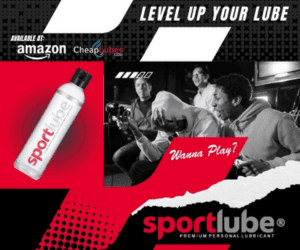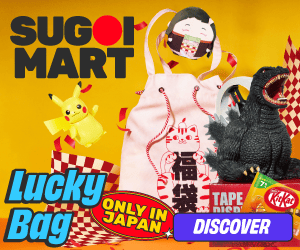
Steve Arhancet, Co-CEO of Team Liquid, on the importance of LGBTQ+ visibility at the Esports World Cup in Saudi Arabia
Team Liquid is one of the most successful and most watched esports organizations in the world and in a landscape which is still notoriously toxic, it is also one of the most diverse teams in esports with half of the team’s leadership being part of the LGBTQ+ community, including its Co-CEO Steve Arhancet.
With this year’s Esports World Cup being held in Saudi Arabia, this posed a difficult set of decisions for Team Liquid and something that was not taken lightly by the leadership team on how best to tackle this situation. As a gay man, Steve had to weigh the decisions of personal and professional risk with being involved in a region where human rights are still a huge issue and allegations of sport-washing are rife.
However, as a team that aspires to be the best and to become a multigenerational esports brand, the responsibility to show up offered an opportunity to affect change and be visible in ways that were greater than boycotting.
Steve’s own personal background as a gay man growing up in a town in conservative middle America with no LGBTQ+ representation certainly influenced the decision, and he saw parallels with his life where he felt ‘unseen’. For Team Liquid to show up in Saudi Arabia wearing their Pride jerseys, it offered an opportunity to fly the rainbow flag proudly in a country with no LGBTQ+ rights or visibility and provide a beacon of hope to young LGBTQ+ Saudis who could see themselves be represented on the international stage in their home country.
I wanted to find out more about this inspirational story and understand the decision making that went into deciding to show up. It’s vitally important as LGBTQ+ people we take up space and show up proudly for our community. But how do you balance that against a region and regime where human rights are still severely and harshly restricted?
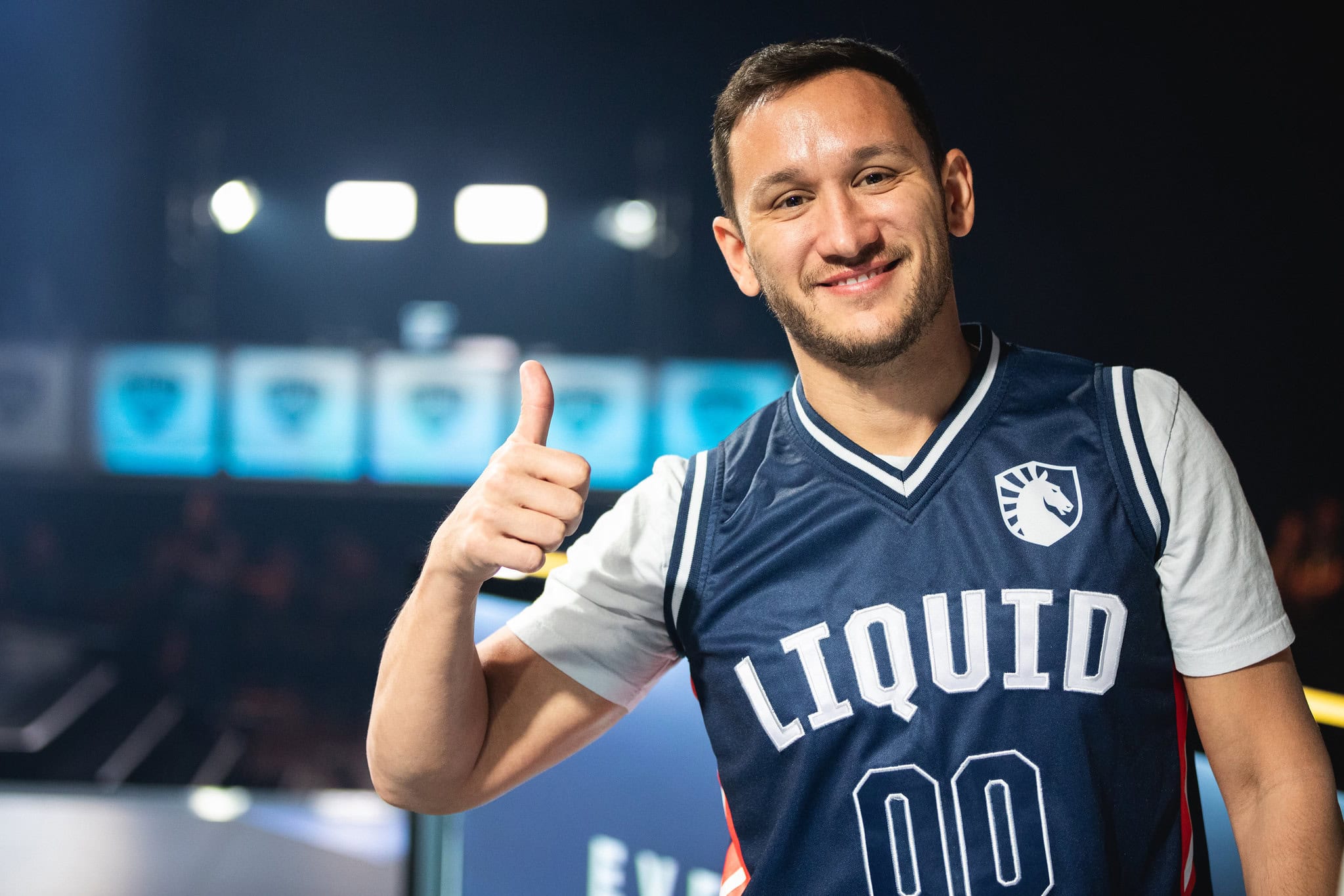
Robin: Steve, thanks so much for joining me today. I’d love to start with your own background first. What was your professional background before you came into the world of esports?
Steve Arhancet: When I was very young I used to deliver newspapers, I did that for four years and then I served in restaurants. After I went to college, I continued working at Outback Steakhouse and I was also tutoring some kids on campus to help pay my way.
When I graduated, I wanted to work in something that would make me money. I know that’s not very cause-oriented, but it was important to me because my family didn’t have much money growing up and so I really did want to have resources.
I went into finance and became a financial advisor in the Washington DC Metro area, which ended up being a lot of sales and marketing and not much finance! I built my own financial planning practice and focused on LGBTQ+ clientele, which at the time was seeing a lot of change. Same-sex marriage had just been passed and I was doing estate planning work for same-sex couples — my business kind of exploded from that.
So from your financial planning background in DC, how did you make the jump into esports?
My genesis for esports and competitive video gaming started quite early in life. I remember going to school and being really excited to go to the computer lab and play Oregon Trail. My dad was a computer consultant, so we had a computer in the house when I was growing up, so I recall playing Civilization and all those sorts of games.
We then had Atari and Nintendo consoles and I played all those games, and I was honestly pretty good at pretty much everything I played. We would go to Blockbuster and I remember they had these competitions at Blockbuster where you could try to get the high score and if you qualified, you got into Major League Gaming events. My parents would take me to these MLG competitions to play games like NBA Jam.
When the age of the internet arrived I would go on AOL and have these debates and philosophical conversations in chat rooms with people that I didn’t even know, and it was a way of connecting with the outside world. I grew up in a really conservative area out in the middle of West Virginia, so for me it was a connection to a world that was not around me in real life. When Civilization 4 came out, it was multiplayer and there was this really hyper competitive Civ 4 community that was global, and we would run these competitions on weekends called the CCC. So that was where I spent a lot of my time through college — and then League of Legends came out.
All of my friends gravitated to League of Legends, so I played that in beta and I was pretty good at it and set up my own team. We ended up getting into the ESL Pro League which was one of the online leagues that all the bigger teams were competing in. This was the first step in future decisions to leave everything that I was doing in finance and start out in professional esports.
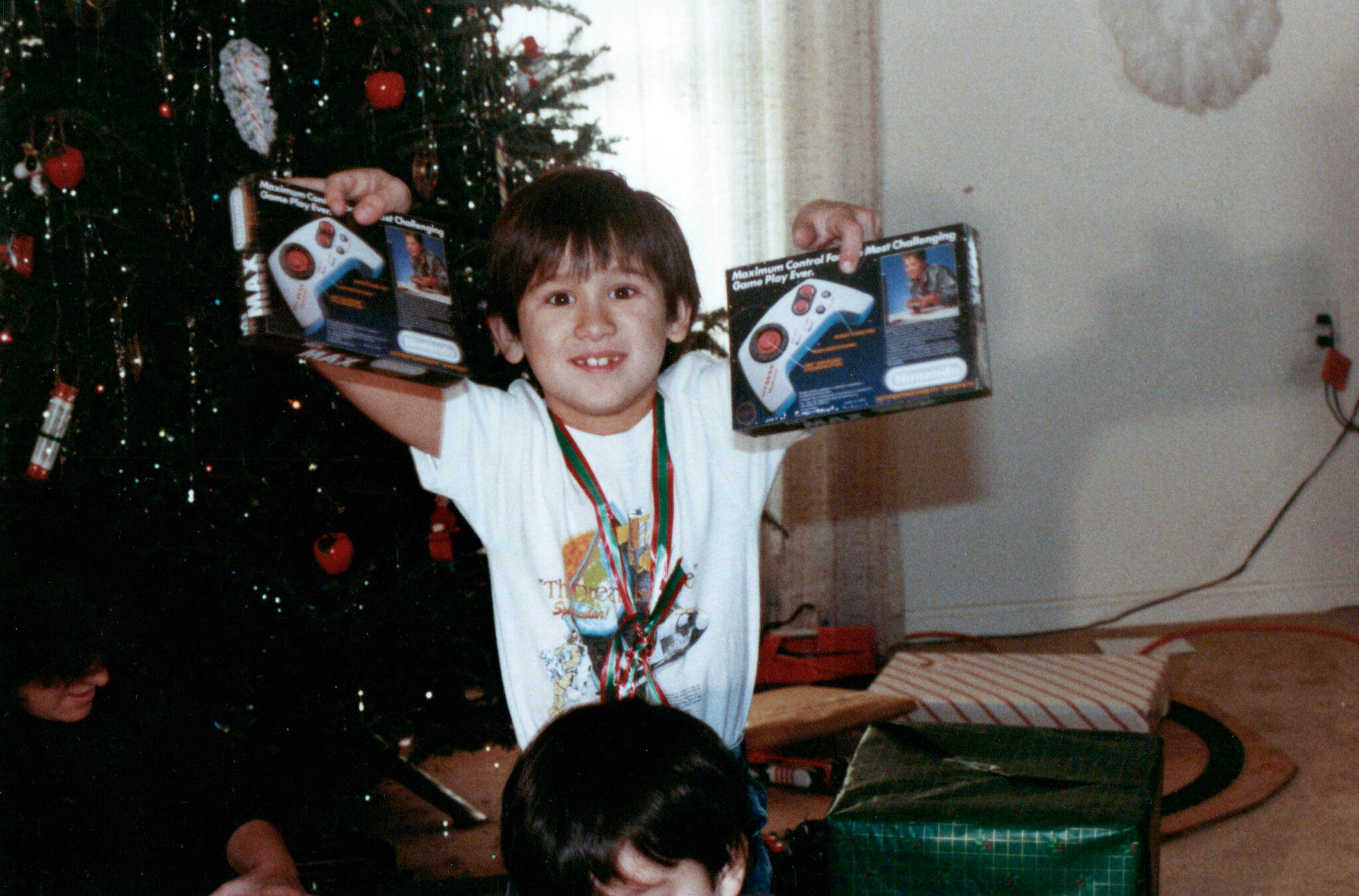
And what was that journey like through those early days to where you are now?
It was the first year before Riot was running the World Championship and it was being outsourced to ESL, which at the time was called the Intel Extreme Masters [IEM]. We qualified for the World Championship that year and en route to the World Championship a sponsor reached out. It was Marcie from Alienware, and she came up to me and said, “Hey, we’d love to sponsor your team”, and I had to ask “what do you mean by that?”
I was still running my financial planning company and I was spending my weekends traveling to Eastern Europe and Ukraine to play Worlds. Marcie said, “How does a quarter of a million sound?” and I thought, “That sounds pretty good!” So I set up the legal entity and was running both businesses at the same time. I was really conflicted on whether or not I should leave everything that I’ve been building in the financial world.
But I remember speaking to Marcelle Saab, shout out to her if she ever reads this, and we were having frozen yogurt one day when I asked her if I should just drop everything and go follow this gaming thing, and she grabbed my arm and said “Steve, if you don’t do this, you’re gonna regret it for the rest of your life. You must follow your heart.” It was this movie-esque kind of moment that was on the Saturday and then on the Monday I decided to just leave everything.
I left everything behind, went to start a gaming house in LA and my team ended up being signed by Curse Inc. Curse was developing a tool called Curse Voice which they ended up selling to Riot Games but their ownership level in Team Curse was a conflict of interest, so we worked out a deal for me to take full ownership of Curse eSports. But then I needed a brand as we couldn’t call it Curse any more. The decision for me was I could create a new brand & team, or I could merge with an existing team.
A mentor once told me that esports is a very top heavy industry where the biggest teams garner the most value, so I decided it was better to merge with a big team. This led to a meeting with Victor, the CEO of Team Liquid at the time, and long story short we agreed to trial a merge. Fast forward to now, we’re Co-CEOs and have a lot of complementary skills.
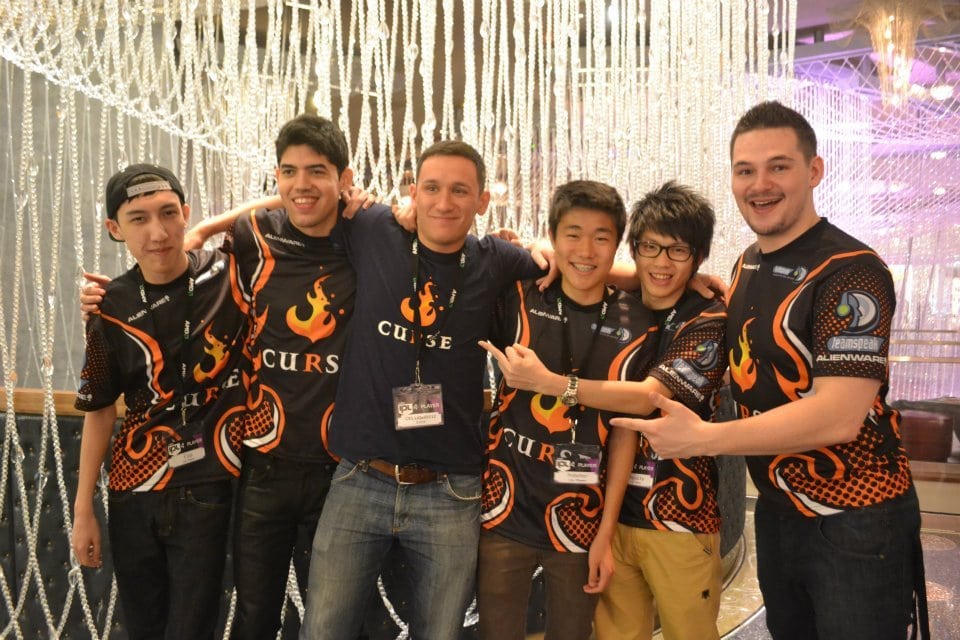
You spoke recently to Dean Takahashi at GamesBeat, and in the interview you were talking about the decision making process around attending the Esports World Cup in Saudi Arabia. Why did you think it was important not to boycott, but to show up and be visible?
It was an incredibly complex decision, and as with all difficult decisions, it needed to come with the right amount of research. We needed to figure out what were the pros and cons associated with our participation in a region of the world that has such an egregious track record of human rights violations. There’s been killings and executions of queer citizens, there’s been slaughter of migrants at the border and there’s been horrific conditions for migrants that are building these projects in the region. So at first blush with this horrific history, I thought we should definitely not participate in anything.
This led to a thoughtful and intentional series of events that we under-went to ultimately come to a conclusion on how to act. First off – we were adamant that we would not compromise on our values. Secondly, research – we spoke with as many NGO’s as possible, Amnesty international and Out Leadership to name a few. Some shared that they typically do not recommend boycotts, others advised us that Team Liquid participating and influencing would be more effective than not attending.
We also spoke with local gay Saudis, and I personally visited the region and took in as much as possible that wasn’t just part of what we were supposed to see and experience.
Additionally, in my role as a Co-CEO of Team Liquid, we have a main quest of being the biggest multi-generational global esports team in the world and that goal is in jeopardy if we are not participating in one of the largest esports events in the world. But that can’t be the only reason to go. A lot of other teams were participating, but not really saying anything or doing anything. A lot of these other teams have different values than Team Liquid. We’re an organization that is about inclusivity and having a welcoming culture. Diversity, equity and inclusion are all important to us, as two of our three executive leaders are queer. It’s part of our DNA.
Team Liquid is an important voice, maybe the only esports team voice, to help influence the direction that can be taken for the future of KSA and the LGBTQ+ folks that live there.
So our conclusion was that as there is progress happening… maybe not to the degree that we want – but Team Liquid is an important voice, maybe the only esports team voice, to help influence the direction that can be taken for the future of KSA and the LGBTQ+ folks that live there. We set out to be a positive agent of change and use our voice by nudging, rather than be bombastic and lose our voice.
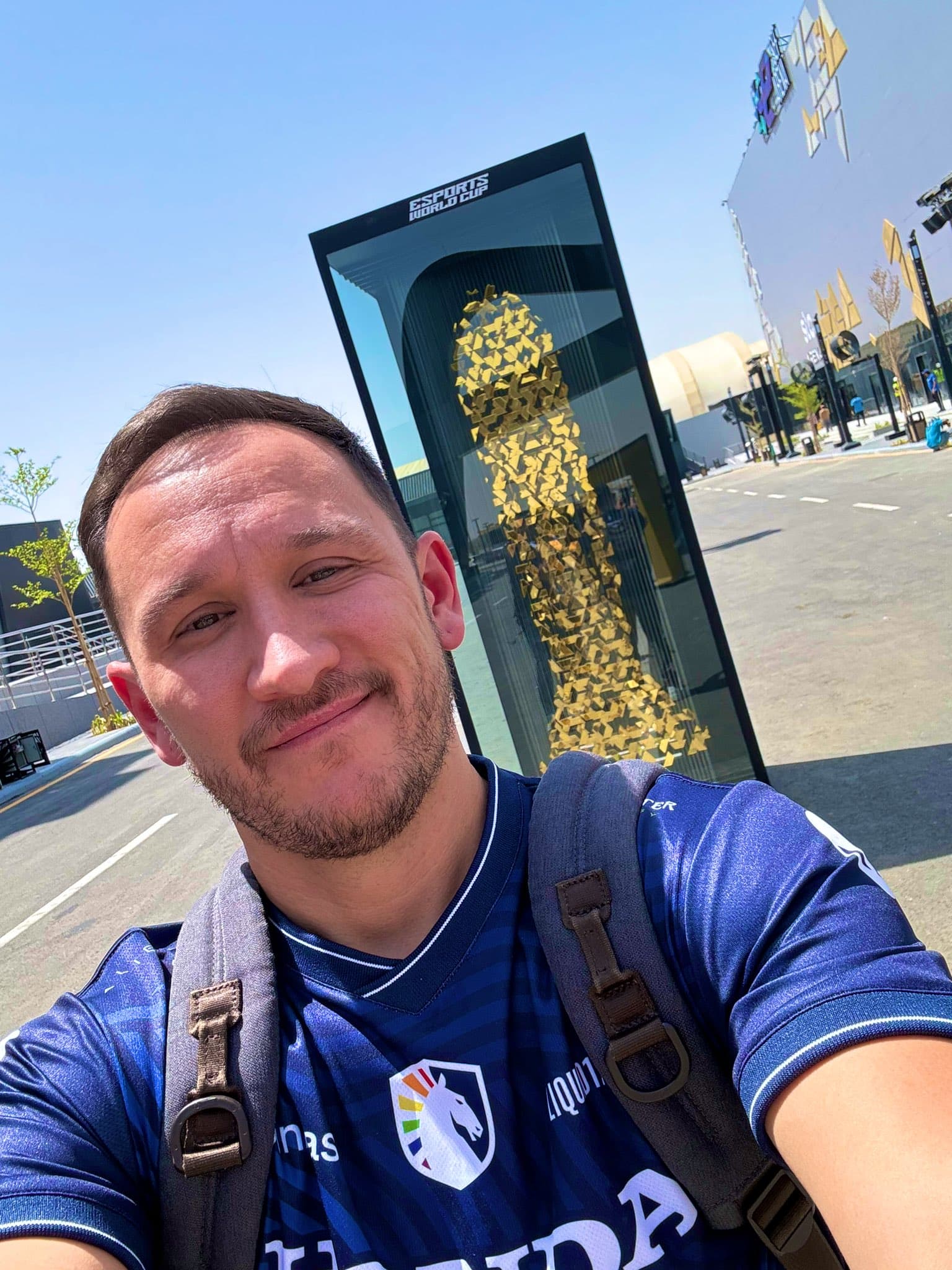
And that’s where the Pride jerseys come in?
Yes, the Esports World Cup was in Pride Month and we felt like the timing was quite serendipitous. We always wear a Pride jersey at competitions all across the globe in Pride Month, so we were determined to continue living our Team Liquid values even when we’re competing at EWC. In past events in KSA, Pride jerseys or flags had never been permitted before, but we were successful in negotiating that change. We had all of our players wear a pride jersey on broadcast, not just on Twitch and YouTube, but being broadcast through the linear TV network in Saudi Arabia and the rest of MENA.
It was potentially the first time that queer Saudis would stop and see themselves and their life represented in their home country. It echoed my own life as I was growing up a gay man in the middle of a country in a conservative family and it took the legalization of gay marriage to finally be seen.
Growing up I remember everyone around me telling me there’s something wrong with me and I need to be fixed with conversion therapy.
Growing up I remember everyone around me telling me there’s something wrong with me and I need to be fixed with conversion therapy. When the news broke that same-sex marriage is being allowed and permitted in this country that I live in, I finally felt seen. Because of that experience, I thought maybe that moment is happening somewhere when we wear the Pride flag on our jerseys. Maybe there’s a queer Saudi that has suddenly felt seen, not to the degree of gay marriage of course, but in a small way and this is what I mean by nudging something forward.
In the interview with Dean, you also touched on your own identity and how you’d kept that underwraps in the esports space, but as part of this journey into Saudi you wanted to make sure that you were out and proud so you weren’t asking the team to do something that you weren’t prepared to do yourself. How did that unfold?
Yeah so for the 10 years I had been in esports I never came out publicly. Of course the company and folks close to my first degree network knew, and I wasn’t shy about saying I had a partner and I was gay, but I had never posted anything publicly.
There was one instance early on at a championship where I remember handing my phone to someone because they needed to make a call and they didn’t have a phone. While they had the phone, my partner Ryan texted me saying ‘Hey I miss you babes. Love you, hope everything’s going well’ something like that and they saw it. After that they went online and they posted this whole article that was saying Steve is gay, it’s disgusting, he should be kicked out of esports, etc. It was a really scathing post and I remember being really shocked and it led me to make the decision that I should just never talk about this in public. I contacted the website and begged for them to take it down, and they graciously did.
Then yes, fast forwarding to this year, we were having this moment with everything with KSA and I thought to myself, what better time to come out properly. It’s Pride Month, we’ve got this amazing opportunity, and if I don’t do it now, when am I ever going to do it?
So that’s when I decided to do the post about a rationalization of our participation in KSA, and also simultaneously using it to come out. I wanted to share how deep this was for me personally and it was not a decision I took lightly because it was a part of my identity.
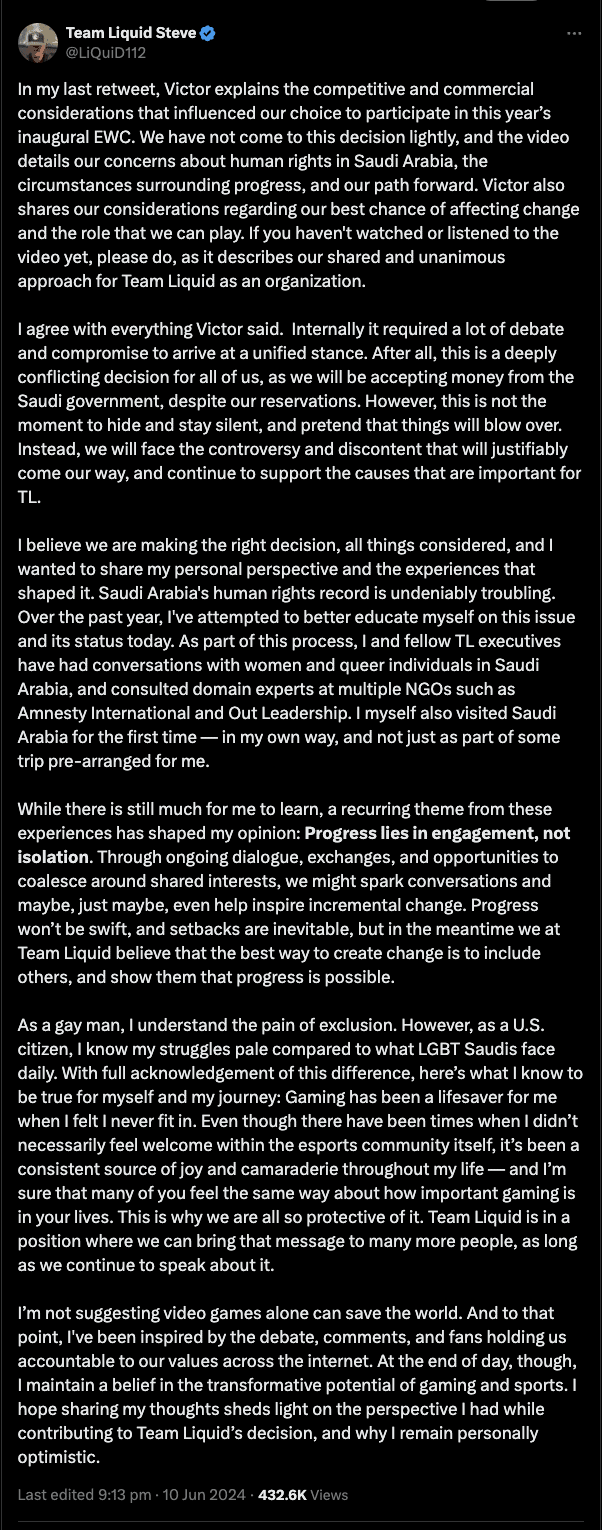
I think that’s really cool, and everyone should be living their best and most open life, but only on their terms. It’s always bad when someone tries to force your hand and it’s great you got it back under control. To be that presence in KSA as the Co-CEO of one of the most successful esports teams in the world as an out and proud gay man with your team wearing a Pride jersey, really does help with that influencing. Taking a few steps back and looking at the esports landscape at a macro level, how would you describe the esports landscape right now for LGBTQ players, staff and fans?
So, from a macro perspective, and this is with the gaming community at large, not just the esports community, it’s still incredibly toxic. If you jump into any voice chat on games like DOTA or Call of Duty, there’s going to be slurs and other nasty things being said, particularly if you’re a woman, it’s just awful. There’s also all the horrible misogyny on social media directed towards female and minority groups, which is fueled by influencers like Andrew Tate and Nick Fuentes.
I believe that gaming is and should be inclusive, diverse and welcoming – that is the true state of gaming. That’s why Victor and I set out the DNA of Team Liquid to protect what we believe gaming should be. We champion positivity and uphold our values to help change the ecosystem, so if you look at our fan base and the composition of employees here at Team Liquid you see that reflection.
Yes, I was going to ask what are some of the things that you’re doing as a company to help combat this?
Team Liquid has always been a global diverse company – even way back in the early days; we have a strong mix of women and minorities from all over the world. Diversity has made us a stronger company. We’ve formalized this through our recruitment process as we’ve grown. We’ve set protocols or policies associated with ensuring a more diverse applicant pool, so that we can have a more diverse workforce.
We truly believe that diversity leads to an ROI of incremental revenue and better thinking, and a better company overall.
We truly believe that diversity leads to an ROI of incremental revenue and better thinking, and a better company overall. That means you need to have better representation in the recruiters that are recruiting candidates and we have a policy that ensures that of the final three candidates for any job posting that we have, there has to be representation of marginalized groups.
When people are onboarded, we have training and support programs for all staff, alongside strong employee resource groups. We also have partnerships with nonprofits including Out Leadership, the Trevor Project and Rainbow Railroad. Plus we have various celebrations for visibility months including Pride Month, which for us runs two months, to cover Europe and North America. It’s also important to do work for all groups all year round too, so we’re not just paying lip service in the visibility months.
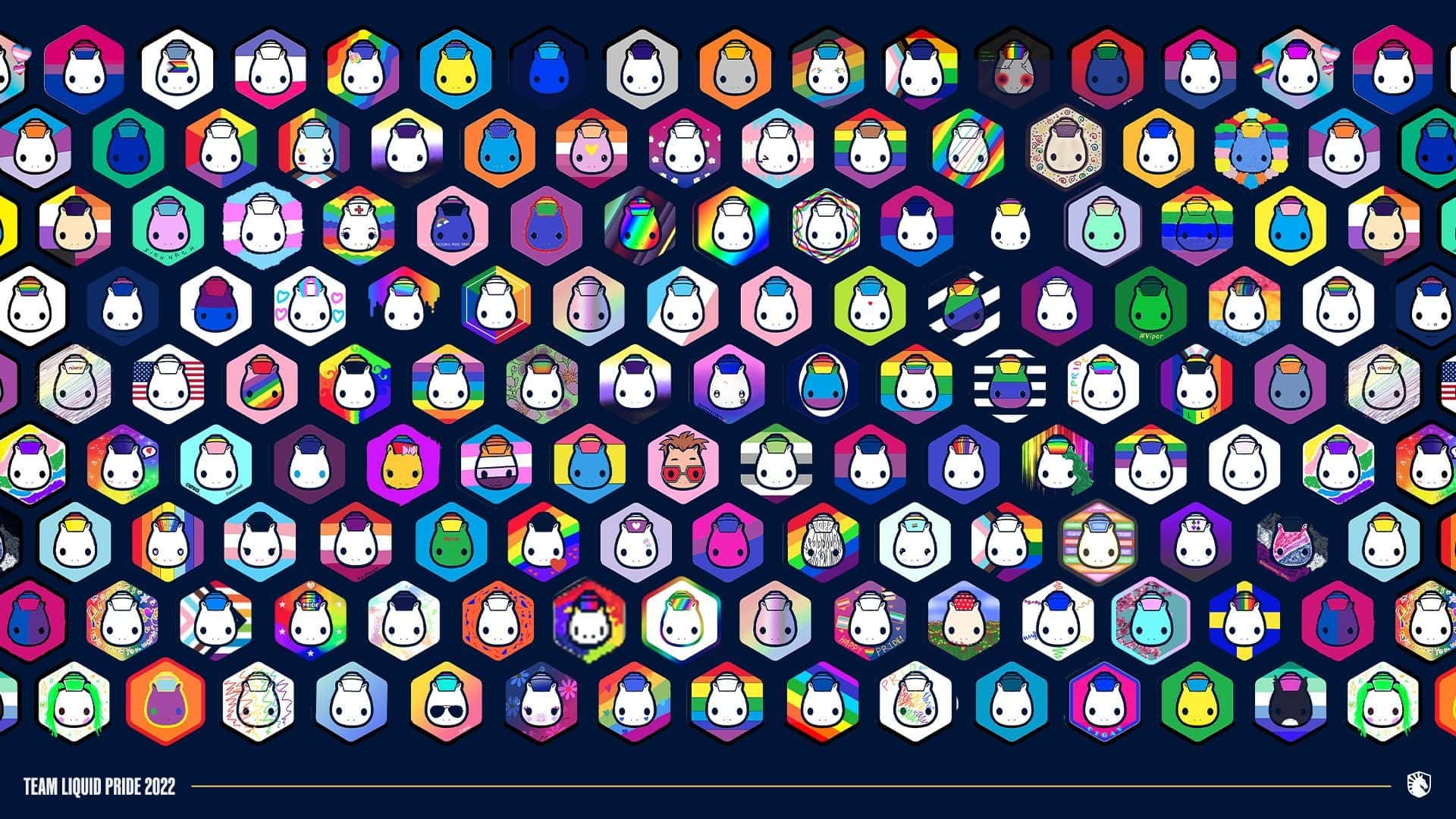
While you’re certainly showing the way for how companies can excel, what more could the industry at large be doing to support LGBTQ people?
I don’t think any developers have taken a position of education and enlightenment. How can we introduce things that provide the right kind of education for them to have a change of heart, and realize the consequences of their actions? If we made developers responsible for that, I think it could lead to a much better environment that is more welcoming for the community.
I’d also like to see more players, coaches and staff being able to confidently come out and share their stories and experiences to invite others to feel more comfortable with doing the same and talking about that. I think this would bring more of a light to this. The percentage of esports players that are queer is really small and so I think greater visibility and representation within the esports world is really vital.
The percentage of esports players that are queer is really small and so I think greater visibility and representation within the esports world is really vital.
Absolutely, and final question, if you had a crystal ball, what does the esports landscape look like in the next kind of five to ten years for LGBTQ inclusivity and equity?
If I were to fast forward 10 years, I hope we’ll have many more out and proud players and staff in esports. At Team Liquid, we are actively working to create a blueprint for inclusivity, and I hope that we’ll have played a key role in transforming the esports landscape into a more welcoming, safe space for the LGBTQ+ community.
I hope that these things happen and we’re playing our part in making gaming and esports a safer space for the queer community. We have a responsibility, given the size of Team Liquid, to really put effort into ensuring those things happen. We are a team of people who are a little different than your standard gamer. We embrace our peculiarities ! We’re all about music, myth, science and innovation. We’re about mastery, being really good at something and getting obsessed with that passion. We’re all about winning and championing and pursuing excellence in the things that we do. That’s the vibe of the company and I love that.
So, shout out to all the Team Liquid fans that have supported us and are part of our community. Love you all and thanks Gayming for having the interview with me today.

